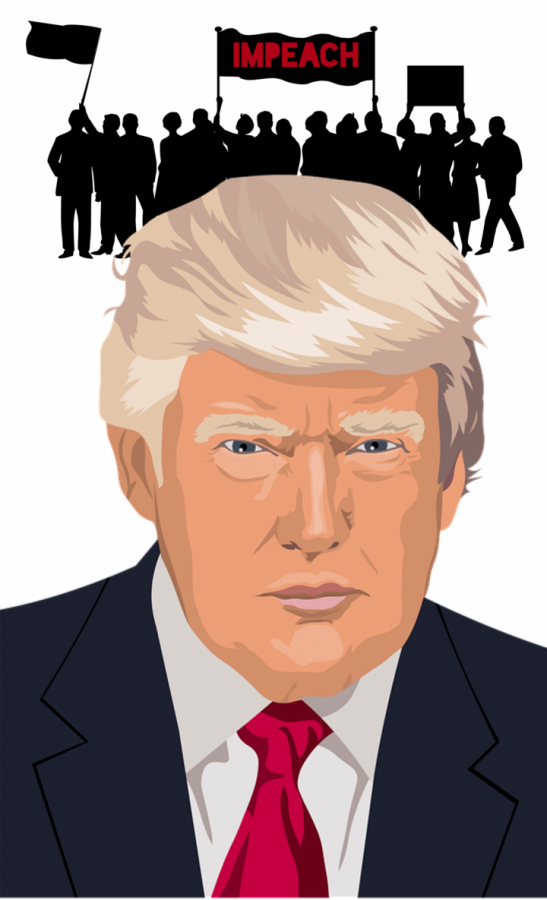What is Impeachment Anyway?
A clarification on what impeachment is, what it looks like, and what it means
Many American citizens feel that President Trump should be impeached.
In the past few weeks, America has been in a frenzy of drama with the word “impeachment” in the midst of it all. While some Americans are educated in politics and aware of what this possibly means for President Donald Trump, there is surprisingly a common misunderstanding as to what impeachment means.
When asked what impeachment is, most people say that it is when the president is removed from office. However, this definition is incorrect for several reasons.
First of all, impeachment is when formal charges are brought against a civil officer of government. This means that any civil officer can be impeached, not just the president; however, we hear about incidents involving the president far more than we do of other officials being impeached.
Secondly, impeachment is not when the civil officer is forced out of office but instead when he or she is charged with treason, bribery, or other “high crimes and misdemeanors,” which then results in a trial. The House of Representatives brings the charges forward for impeachment and the Senate tries the accused official while the vice president presides over the trial, unless the president is the one being prosecuted, in which case the chief justice presides.
If the accused is found guilty by the Senate of the charges brought against him or her, then he or she would be convicted and removed from office. In the case of American presidents, Trump would be the third president in history to be impeached if the Senate finds him guilty.
President Andrew Johnson was impeached in 1868 for “high crimes and misdemeanors” but not convicted. In 1999, President Bill Clinton was impeached for obstruction of justice and perjury and was also found not guilty by the Senate. In the 1970s, Richard Nixon was going to be impeached for his involvement in the Watergate scandal, but he decided to resign before he could be. If Nixon had been impeached, he would have most likely been removed from office (it takes 67 votes from the Senate to convict the president).
One of the most controversial aspects of impeachment is the “high crimes and misdemeanors” phrase in the Constitution because of how general and vague the statement is. For example, when Bill Clinton was impeached, but not convicted, Americans discovered that lying under oath (perjury) and obstructing justice are not considered high or severe enough offenses to warrant a removal from the presidential office. To this day, Democrats and Republicans disagree on what constitutes as grounds for impeachment and conviction.
The impeachment hearing can last as long as it takes for the Senate to come to a decision, but the officer on trial is expected to carry on with their regular duties in the meantime. If the defendant is found guilty of the charges brought against him or her and removed from office, that does not mean that he or she will be sentenced to federal charges. Since the impeachment trial is a civil court and not a court of law, those being convicted will have to go through another trial by a court of law if the charges brought against them are illegal and deserve a prison sentence. For example, in the case of Richard Nixon, he would have served jail time for his illegal dealings but was pardoned from having to face a trial in a court of law by his vice president who succeeded him, Gerald Ford.
For President Trump, the impeachment inquiry means the House is deciding whether he has committed a high enough crime in their eyes to be impeached. It takes more than 50 percent or 218 votes in the House to impeach an official. President Trump is being investigated for impeachment for abuse of power due to a phone call he had with the Ukraine president, Volodymyr Zelensky. Two whistleblowers, which are people who stay anonymous while exposing secretive and/or illegal activity of a person or organization, have come forward to accuse Trump of using the presidential office for his personal advantage in his phone call with Zelensky. As of now, it is hard to tell whether or not Trump will be impeached and, if he is, if he will be voted out of office. Nevertheless, you can now understand what it means when you hear the word “impeachment” and what that could involve for President Trump.




